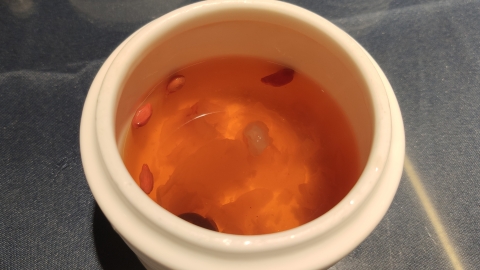What is the best combination for Schisandra?
Generally speaking, there is no definitive answer to the best combination with Schisandra. Schisandra can be combined with red dates, goji berries, astragalus, Chinese plum (wu mei), honey, and others. The specific analysis is as follows:
1. Red Dates
Red dates are warm in nature and sweet in taste, and have the effects of tonifying the spleen and stomach, nourishing blood, and calming the mind. When used together with Schisandra, they can enhance the effects of nourishing the heart and spleen and stabilizing the mind, making them particularly suitable for individuals with deficiency of both the heart and spleen who suffer from insomnia and frequent dreams. Additionally, the natural sweetness of red dates can balance Schisandra's sour and astringent taste, improving overall palatability.
2. Goji Berries
Goji berries are neutral in nature and sweet in taste, known for their ability to nourish the liver and kidneys, improve vision, and moisten the lungs. When combined with Schisandra, they enhance the effects of liver and kidney tonification and help preserve essence and improve eyesight. This combination is suitable for symptoms caused by liver and kidney deficiency, such as blurred vision and soreness in the lower back and knees.

3. Astragalus
Astragalus is known for its qi-tonifying properties, while Schisandra has the effect of astringing the lungs and stopping cough. When used together, they can synergistically enhance the effect of boosting qi. This combination may also provide some relief for chronic cough due to lung deficiency.
4. Chinese Plum (Wu Mei)
Chinese plum has functions of astringing the lungs to stop cough, tightening the intestines to stop diarrhea, and promoting fluid production to relieve thirst. When paired with Schisandra, it enhances the effects of lung astringency and cough suppression, as well as intestinal binding for diarrhea control. It is particularly suitable for conditions such as prolonged cough due to lung deficiency, chronic diarrhea, or persistent dysentery.
5. Honey
Schisandra has a sour taste, while honey is sweet; combining the two improves the taste of Schisandra. Moreover, honey itself has certain tonic properties, and when used with Schisandra, it can produce a synergistic enhancing effect.
In daily life, it is recommended to maintain a balanced diet, increase intake of vegetables, fruits, and other sources of vitamins, develop healthy lifestyle habits, and ensure sufficient sleep. Additionally, individuals allergic to Schisandra should avoid its use to prevent adverse reactions such as skin itching and swelling.







